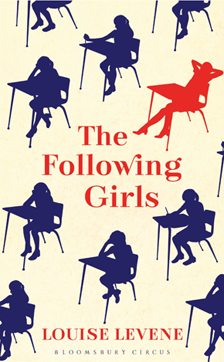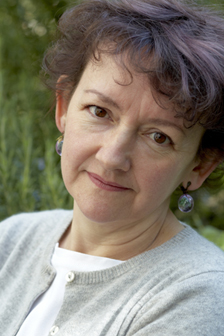Why read on?
by Louise LeveneThe author of The Following Girls, a tragi-comic novel of shrinking horizons, dangerous alliances and not-so-happy families in 1970s Britain, shares her tips for approaching fiction.
Be wary of all rules. When pressed for tips, novelists can become astonishingly dogmatic – usually extrapolating from their own working practice: “never use adverbs”, “avoid flashbacks”, “shun exclamation marks”, etc. They can get very worked up about “said” and its alternatives. Yes, in an ideal world, your characters should be distinctive enough for “said Mary” to be pretty much redundant but I can’t see the problem with “hissed Mary” should the need arise. What you don’t want is “said Mary quietly”.
One of the great clichés of novel-writing advice is to “write about what you know” which is all very well if your stint as Deb of the Year was followed by a decade in MI6 but few of us lead lives so rich in material. I don’t doubt that many perfectly delightful novels are written about middle-aged mothers of two living in North London but I, for one, would rather die than read or write them. Make it up. It’s fiction: you can do whatever you want, (just be sure and research it first).
But don’t over-research. I like to set my novels in the past but once the scene is set I try not to clog the narrative with extraneous period detail. I am fascinated by the mindset of previous generations but you won’t find my characters sitting around discussing the Wall Street Crash or the Suez Crisis unless plot or character demands it. Immerse yourself in your chosen milieu but use your research as scaffolding and be prepared to take it down once the novel can stand by itself.
Show your manuscript to someone whose opinion you respect, but try to focus their energies: Do the diary extracts work? Is the pig farm sequence too long?”
Don’t take your reader’s interest for granted. Purple prose encourages skim-reading. When in doubt cut any long descriptive passages, especially weather. I bet you do it beautifully but that kind of Essay Prize writing can become a little tedious – unless you’re Virginia Woolf in which case it can become very tedious indeed. You might not be aiming at a ‘page-turner’ but readers bore easily and it’s still quite salutary to ask yourself “Why read on?” at the end of each chapter and – even more importantly – at the bottom of your first page (the slush pile beckons).
The rule books blithely tell you to “show your manuscript to someone whose opinion you respect” but this is far easier said than done. If you find the perfect guinea pig, try to focus their energies: “Do the diary extracts work? Is the pig farm sequence too long?”, etc.
If all else fails, simply read the finished draft aloud to yourself. Infelicities and clunky repetitions will jump out and bite you, your punctuation will suddenly spring into focus and your dialogue will grow sharper and more convincing.
Avoid technology. Turn off the internet and switch off the phones while writing or you won’t be able to focus. If you need to look something up, make a note of it and then do all your Googling in one go later in the day. There are apps designed to help with this but faffing with the iPad could create more problems…
Embrace technology. I use a notebook and a fountain pen because I really like the flexibility but I then type it all into the laptop nightly, download regularly and email myself the story so far. Once you have a half-decent draft to play with, use the word processing tools to check for bad habits and to search and destroy over-used words (mine are ‘little’ and ‘slightly’).
Ebook users might like to send a Rich Text version of the latest draft to their Free Kindle address. Reading the draft on an e-reader is a remarkably effective way of gauging what your finished work might look like on the page.
This will sound obvious, but do decide on a coherent file-naming strategy or you will end up with things like “Second draft (B) final final final version”. Have a separate folder for earlier drafts, update it religiously and don’t let any of the old stuff get confused with the work in progress. Novels have been pulped for less.
Louise Levene read English Literature at Somerville College, Oxford and has a PhD in English Language from University College, London. For the last 25 years she has been dance critic for the Independent and the Sunday Telegraph. She lives in London with her husband and two children. Her debut novel A Vision of Loveliness was a BBC Book at Bedtime and shortlisted for the Desmond Elliott Prize. It told the story of a 1960s shop girl who stumbles into a world of part-time modelling and amateur prostitution. Her second was Ghastly Business, a black comedy set in a 1929 pathology lab and her third, The Following Girls, satirises the horrors of a 1970s girls’ school.
The Following Girls is published by Bloomsbury Circus.
“She writes with such energy and panache that I found myself screaming with laughter… Her characters are a delight [and] she gets the period beautifully right, so that one is all the time aware of the serious intent behind all the gruesome fun.”
Barbara Trapido
Read more.



